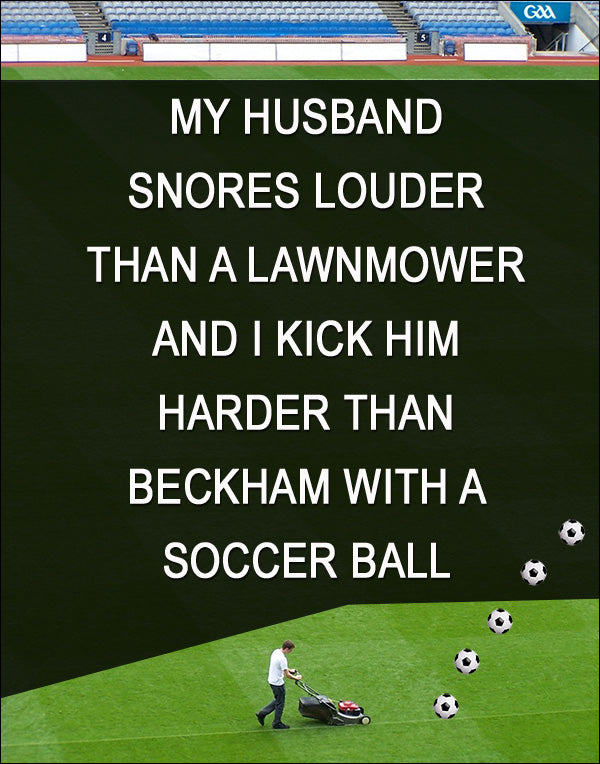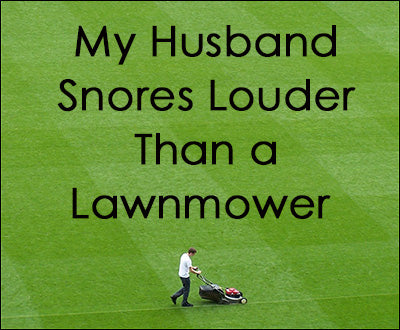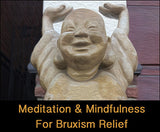Snoring and the Art of a Good Night's Sleep...for Everybody Involved
For or a staggering number of Americans, a restful night's sleep is sort of like the Holy Grail; it seems believable as a child, especially when our heroes are chasing it in the movies and on television. As we age however, an honest, soothing eight hours of sleep becomes something of mythic impossibility.

For an estimated 70 million Americans, poor sleep is a product of snoring according to the Centers for Disease Control and Prevention.
Furthermore, it's not just the snorer that's suffering. After New York Times blogger Tara Parker-Pope wrote a piece about how married people get better sleep, she received a rash of objections from readers.
"Are you kidding me," one woman wrote Parker-Pope. "My husband snores louder than a lawnmower and I kick him harder than Beckham with a soccer ball. We both slept better when we were single."
What Health Problems are Caused by Lack of Sleep and Snoring?
If you didn't know already, a consistent lack of healthy sleep because of snoring carries some serious consequences related to overall wellbeing. Without a good night's rest, the list of health risks can include some of the following:
- Depression – during sleep, the brain has the opportunity to recharge and replenish itself, but too little sleep or consistently interrupted sleep causes a chemical imbalance in the brain that can lead to feelings of anxiety and unhappiness
- Weight gain – without the right amount of slumber, the body has less energy to exercise and burn calories. After a period of poor sleep, a cycle of fatigue can set in, making it difficult to exercise and shed weight
- Increased risk of cardiovascular disease and higher cholesterol, according to sleep studies on people who suffer from chronic snoring
- Similar studies have linked snoring to an increased risk of stroke because it's an indication that blood vessels leading to the brain have thickened and narrowed
- Lack of productivity at work from being overly tired
- Higher risk of injury due to sleepiness, especially while driving or using machinery
- Decreased sexual drive caused by, well, just plain being too tired
- Lingering headaches due to the lack of oxygen making its way to the brain
What Causes Snoring?
Snoring is most commonly caused when the tissue at the back of the throat – tongue, upper throat, soft palate and uvula – collide with one another as breathing occurs and creates the sound of snoring.
Other conditions can induce or increase the risk of snoring and these include...
- Sinus congestion
- Having a cold or flu
- The shape and anatomy of the mouth and nasal passages
- Allergies
- Sleep position
- Being overly tired
Lest we forget, Dr. Nancy A. Collop, president of the American Academy of Sleep Medicine tells the New York Times, "We laugh and joke about snoring, but it can be pretty annoying and disruptive to couples."
How Can I Reduce or Stop Snoring?
Here are some immediate steps a person can take to curb their snoring…
1. Getting regular exercise and losing weight might be difficult with busy work schedules, but the payoff can be huge if you plan to eliminate snoring.
2. Limiting or abstaining from drinking alcohol close to bedtime can help with sleep and snoring. It sometimes causes the tissue in the back of throat to relax too much, which leads to snoring.
3. Sleeping on your side instead of your back is not only healthier, but it can reduce vibrations in the soft palate and minimize snoring.
4. Staying on a regular schedule that includes seven to eight hours of sleep every night at the same time promotes restful sleep and curtails snoring.
5. Drinking plenty of water throughout the day keeps hydration levels high and prohibits the soft palate from becoming “sticky” which promotes snoring.
6. Vacuuming the bedroom regularly and changing pillowcases often minimizes dust that can irritate the throat and nasal passages while sleeping and increases snoring for reasons similar to dehydration.
7. Many snorers have found success using oral appliances. They help to maintain open airways, are comfortable to use, they're fairly non-invasive, and are easy to travel with.
Persistent snoring might be a sign of sleep apnea or other types of sleep disorders and should be diagnosed by a physician.
Getting six to eight hours of uninterrupted, snore-free sleep might not be the Holy Grail, but it is one of the key indicators of a person's health, as well as that of their sleep partner.






